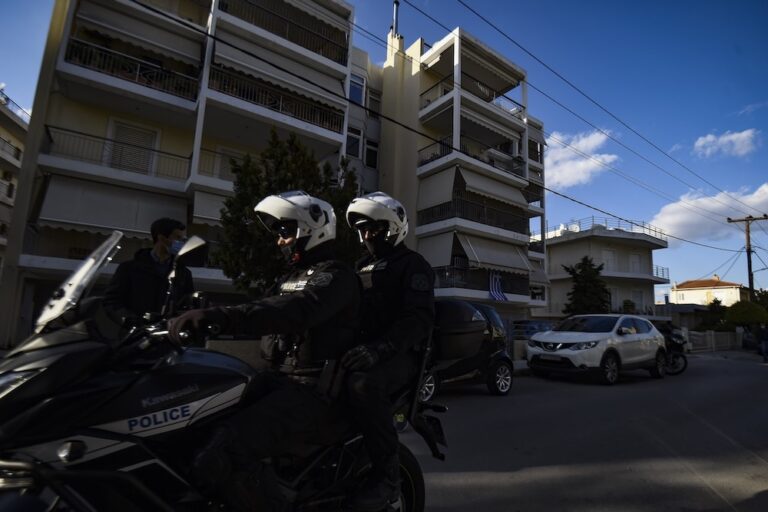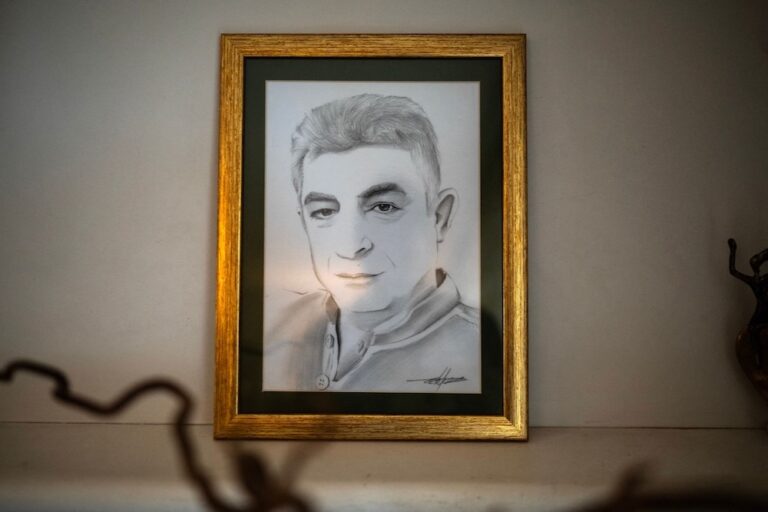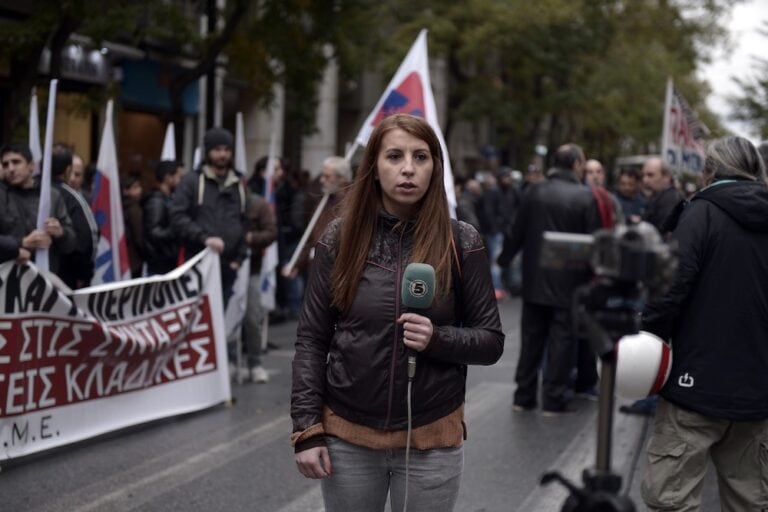Political commentator, cartoonist Andreas Petroulakis says politicians' cases create atmosphere of "fear, threat and censorship."
This statement was originally published on freemedia.at on 11 November 2016.
By IPI Correspondent Lambrini Papadopoulou
At first glance, it looks to be a battle between David and Goliath: Greek political cartoonist Andreas Petroulakis against the country’s powerful defence minister and leader of the right-wing Independent Greeks (ANEL) party, Panos Kammenos.
“For me it certainly feels like it,” Petroulakis, who is the defendant in a €1 million libel suit brought by Kammenos, said in a recent interview with the International Press Institute (IPI).
“When I first learned about the lawsuit, I was stunned,” Petroulakis recounted. “A public figure like Panos Kammenos can certainly defend himself in numerous ways if he feels that he has been wrongly criticised. The fact that he chose to file a lawsuit against me asking for this huge amount proves that his actual aim was to frighten me and deprive me of my right to engage in political criticism.”
The incident that provoked Kammenos’s decision to go to court was an opinion article Petroulakis published in March 2015 for the well-known news site protagon.gr. In the article, “Panos Kammenos. They begin to resemble him”, Petroulakis wrote that the coalition Greece’s governing Syriza party decided to form with ANEL had resulted in altering Syriza’s leftist nature.
Petroulakis said he still cannot comprehend the reason why Kammenos felt offended by his article.“But for what it’s worth, I do believe that life itself has proved my article was completely to the point,” he added.
The Kammenos libel suit is the second in Petroulakis’s long career. In the first, Petroulakis was ordered to pay €1,500 to a Greek media owner, George Kouris, whom he had described as having the ability to survive and adapt to situations like a cockroach. Kouris had originally requested €300,000. The case is currently under appeal.
For Petroulakis, the suits filed by powerful public figures go beyond the limits of a conflict between two people.
He explained: “They tend to spread across the newsroom and create an atmosphere of fear, threat and censorship. I can say for sure that press freedom has suffered a lot due to these libel suits.”
3,000 signatures in support
Fortunately, Petroulakis is not facing the threat of financial ruin alone. Several journalist colleagues organised an online petition to support him and counter attempts to suppress free expression.The petition reads: “Political criticism and assessment of the activities of public figures is not only an established democratic right of every citizen but also an elementary obligation of every journalist. Therefore, the bringing of an action by a representative of the government and the amount of damages sought in this case logically assume that the aim of the applicant is the suppression of freedom of speech through preventive censorship implemented by intimidation of journalists.”
More than 3,000 people have signed the petition already.
After the suit was filed in 2015, the Journalists’ Union of the Athens Daily Newspapers (ESIEA) also released a statement backing Petroulakis and called for reform of Greece’s civil defamation law to stop the “industry” of vexations libel claims against journalists.
Last December, following significant pressure from ESIEA and other groups, the Greek Parliament finally passed comprehensive changes to the law, which had been widely known as the “press killer”. The changes included the introduction of a pre-trial period during which plaintiffs must allow media outlets to remedy the alleged harm done (plaintiffs are barred from pursuing damages in court in the case of an appropriate remedy).
Because it was filed prior to December, Petroulakis’ case will be heard under the old law. But we asked him if he felt he could have benefitted from the reforms.
“Perhaps this could be helpful for some colleagues of mine, but personally I don’t feel I had anything to change in my article, apart from some minor technical details that had nothing to do with the substance,” he said, in reference to the possibility of remedy.Petroulakis added that much more work needed to be done, commenting: “As far as I am concerned, the law remains the same at its core, even though the government has changed.”
Unlike weak but confident David, who managed to defeat his strong opponent, Petroulakis has ample reason to feel uncertain about the outcome of the battle that will take place in court on Jan. 12.
“My only hope is that by January, Kammenos will no longer be a member of the government and that way I have a better chance of having a fair trial,” he said.
One thing, however, is for sure.
“Until then, I will not stop writing my opinion about him,” Petroulakis promised.
Unmasking Defamation Laws in Greece
This article is the fourth entry in a reporting series investigating the effects of Greek defamation laws on media freedom and the work of journalists. Production of this series is supported by the European Commission.


